 |
 |
||||||||
Pulling at Art Strings
“Can we have ice cream?” he asks, as the woman smiles and leads him to the play structures. The woman, a social worker with the Monterey County Department of Social Services, is looking for a photographer whom she has arranged to meet to take pictures of the boy. She sees a woman with a camera around her neck, and the two women introduce themselves, then the photographer introduces herself to the boy. He has been informed that he is missing some school today in order to have his picture taken, and that the pictures may be shown to people who might But that does not trouble the boy. He has discovered a large metal pipe to climb through and leans his head against the inside while the photographer snaps his picture. She shows him the digital image on the back of her camera. The boy is excited.
After about thirty minutes, it is time for the boy to go. He bends down in the grass, and picks two small purple flowers. He hands one to the social worker, and one to the photographer. The photographer watches him slide back into the sedan behind the social worker, and drive off. The flower is already wilting, and the photographer already feels like she is going to cry.
###
“I’m ruthless,” she says. “I’m working on a friend of mine right now.” May’s actually about to work on the heartstrings of the whole region. About a year ago, inspired by an article in Parade magazine, May pitched the idea of a northern California chapter of the “Heart Gallery”—a traveling exhibit of photographs of kids in the foster care system. The photographs are taken by professional photographers who volunteer their services, replacing blurry Polaroid photos taken by social workers. There are more than 60 such galleries across the country, including two in southern California. May found willing partners in various private and public agencies, and the Bay Area Heart Gallery was born. After premiering in Oakland this April, the exhibit is now traveling through Alameda, Contra Costa, Marin, Monterey, San Francisco, San Mateo and Santa Clara counties.
On a recent afternoon, Henri arrived at the Kinship Center to photograph Mark, a handsome 15-year-old boy who likes animals, riding BMX bikes, playing video games, playing the saxophone, and whose favorite food, he said laughing, is lettuce. “It’s iceberg all the way,” Mark said. Last year, Mark took a piece of paper and wrote the headline: “Looking For A Family.” He listed his hobbies, favorite pets, and most importantly, his biggest desire. “I want an involved family that would support me in anything.”
Henri says the Heart Gallery project has allowed kids like Mark to have a public face, instead of merely being a statistic.
The Heart Gallery’s first Monterey County venue is Community Hospital of the Monterey Peninsula, where the exhibit is being shown this summer. May hopes that people who view the photographs will put aside their fears and consider adopting a child out of the foster care system. “It’s unbelievable the success rate this [project] has had,” she says. “No child is unadoptable. Kids aren’t perfect, and families aren’t perfect. It’s about making them fit together.”
For information about the Monterey County Heart Gallery exhibit, contact Barbara May at 455-4726. To volunteer or sponsor an exhibit, call 455-4783. For information on the Kinship Center, see www.kinshipcenter.org. For information on the National Heart Gallery, see www.freddiemacfoundation.org.
This article first appeared in the Spring/Summer 2006 issue of Carmel Magazine. |
Bad News for Local Women |
|||
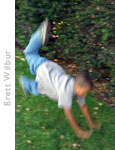 On a warm June day near a Monterey park, a six-year-old boy leaps out of the backseat of a small sedan, and eagerly begins pulling on the hand of the woman who has brought him there.
On a warm June day near a Monterey park, a six-year-old boy leaps out of the backseat of a small sedan, and eagerly begins pulling on the hand of the woman who has brought him there.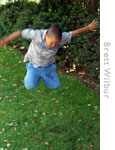 adopt him. The photographer has been screened and filled out numerous forms. The social worker has gone before a judge to petition that the boy may have his picture taken. A court order has been signed by the judge. Arrangements have been coordinated with the boy’s foster mother. Months of red tape, phone calls, and court appearances have taken place in order for this one short photo session to happen.
adopt him. The photographer has been screened and filled out numerous forms. The social worker has gone before a judge to petition that the boy may have his picture taken. A court order has been signed by the judge. Arrangements have been coordinated with the boy’s foster mother. Months of red tape, phone calls, and court appearances have taken place in order for this one short photo session to happen.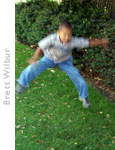 “Take a picture of me climbing!” he shouts. The photographer obliges and photographs the boy climbing up a pole and sliding down it. She takes pictures of him making a tough face and practicing karate moves. She photographs him doing wobbly handstands and tumbling somersaults in the grass. She takes a picture of him hugging the social worker. She is startled that he knows the word “social worker.”
“Take a picture of me climbing!” he shouts. The photographer obliges and photographs the boy climbing up a pole and sliding down it. She takes pictures of him making a tough face and practicing karate moves. She photographs him doing wobbly handstands and tumbling somersaults in the grass. She takes a picture of him hugging the social worker. She is startled that he knows the word “social worker.” According to Barbara May of the Salinas-based adoption agency the Kinship Center, there are around 92,000 children in foster care in California alone. That’s 92,000 kids living without either biological or adoptive parents. 92,000 boys and girls who have a less than ideal childhood situation, who have for a multitude of reasons and no fault of their own, been thrown into an over-taxed system where their future depends on busy social workers and judges. It’s a system where everyone is doing the best they can to help kids who may have been neglected and horribly abused, and move them into permanent, safe “forever family” situations. Some kids will return to their biological families, but many of them won’t.
According to Barbara May of the Salinas-based adoption agency the Kinship Center, there are around 92,000 children in foster care in California alone. That’s 92,000 kids living without either biological or adoptive parents. 92,000 boys and girls who have a less than ideal childhood situation, who have for a multitude of reasons and no fault of their own, been thrown into an over-taxed system where their future depends on busy social workers and judges. It’s a system where everyone is doing the best they can to help kids who may have been neglected and horribly abused, and move them into permanent, safe “forever family” situations. Some kids will return to their biological families, but many of them won’t.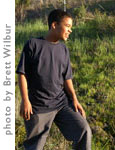 The idea of “these wonderful kids” languishing in foster care makes May furious. Kinship Center, a statewide nonprofit, coordinates all types of adoptions, and May goes to great lengths to arrange them. She personally contacts people she thinks might be a good fit for particular children.
The idea of “these wonderful kids” languishing in foster care makes May furious. Kinship Center, a statewide nonprofit, coordinates all types of adoptions, and May goes to great lengths to arrange them. She personally contacts people she thinks might be a good fit for particular children.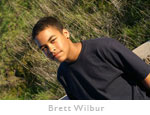 Photographers include Santa Cruz-based Paul Henri, who squeezes in photographing children and organizing for the exhibit between a full-time job.
Photographers include Santa Cruz-based Paul Henri, who squeezes in photographing children and organizing for the exhibit between a full-time job.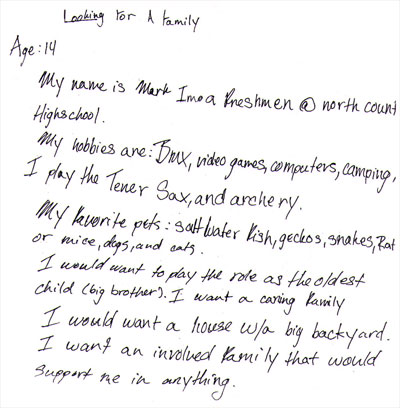
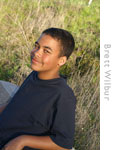 “I’ve raised two grown sons and it makes me feel really emotional,” Henri says. “Knowing I’m able to use my creativity as a photographer to benefit kids makes it meaningful.”
“I’ve raised two grown sons and it makes me feel really emotional,” Henri says. “Knowing I’m able to use my creativity as a photographer to benefit kids makes it meaningful.”